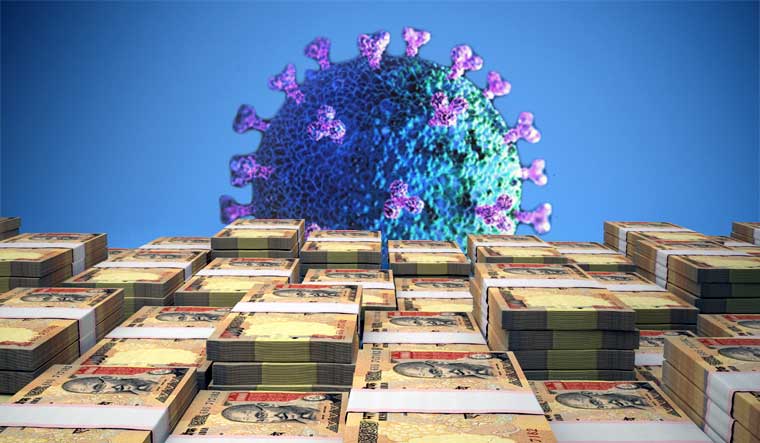The past month has been one of the most tumultuous for generations as the meat sector as it has grappled with the lockdown brought about by the onset of the Covid-19 pandemic (Covid crisis). Retailers and their partners have struggled under the strain of consumer panic buying whilst continuing operations whilst implementing social distancing. Vast swathes of the food services and catering trade (aside from limited delivery and click-and-collect operations) have also presented significant challenges throughout supply-chains, particularly in beef and lamb but also in pigmeat.
Market Impacts
The beef sector has experienced price declines recently, primarily due to the loss of the food services trade. In the UK, about one-third of beef product sales in monetary terms are to the food service sector. Such sales consist of the highest value products (e.g. fillet steaks). With the implosion of demand, this has a much more pronounced impact on carcase value, which some have estimated to have declined by around £200 per head (or 15-20%) at the processing level. Increases in retail sales which have taken place are primarily for mince and burgers, which are of lower value, thus only partially compensating for steak sales losses. At the farm level, price declines have remained relatively small with GB steer prices on 18th April (324 ppkg) approximately 4% lower than prices on 21st March (336 ppkg). If the Covid Crisis continues for a sustained period, further farmgate declines are likely.
The lamb trade has also experienced issues, although the Easter holiday and the recent commencement of Ramadan have helped prices to recover recently. That said, major concerns remain due to the closure of the food services sector in continental Europe, most notably France. As more UK lamb comes onto the market later in the year, any oversupply at that point will have a much more pronounced effect on prices. If restaurants do open, they are unlikely to be operating at capacity, due to social distancing measures. As most lamb is eaten outside of the home, this will present difficulties.
Similar trends have taken place in the pig meat sector with convenience products (e.g. bacon and sausages) seeing sales increase significantly but demand for roasting cuts has decreased markedly. There are additional complexities at play more globally in pig meat. Processing capacity in the US has been hit by coronavirus cases amongst workers in meat plants, meaning that production lines have shut down. Whilst Europe has not witnessed processing disruption on the scale of the US, food services demand has lowered, meaning price declines have resulted.
Much of what will happen in the pig meat sector will be governed by the recovery in the Chinese market which has been hit by both the Covid crisis and African Swine Fever (ASF). China has started to re-open again after a lockdown in some regions, and some analysts have predicted that Chinese demand will be back to 90% of normal levels by the end of the year. On the supply-side, it has had to deal with ASF which has almost halved its breeding sow heard, and is only in the early stages of recovery. Short-term, the deficit of pork in China should help European prices recover from Covid. It could also provide some support in other protein categories but will not compensate for the losses in carcase value seen in beef, nor the potential oversupply in lamb as the UK production season progresses.
Support Schemes
In reaction to the Covid crisis, various forms of support have been instigated across Europe. Some mechanisms have been aimed at the wider economy, whilst more recently, specific measures to support the farming sector have been announced by the EU-27.
Looking at the economy generally, whilst the UK has opted for a furlough system (subsidising 80% of wages up to £2,500 per month), this scheme is of limited use to the food sector as it necessitates workers being off work for that period. This has created difficulties for processors who have to continue operations whilst also coping with price declines. The wage subsidy systems in place elsewhere in countries such as the Netherlands, Ireland and New Zealand, arguably offers more support to sectors such as agri-food where turnover declines are projected, but production must continue. In the Netherlands for example, if a 25% decrease in turnover is projected, the State will subsidise approximately 22.5% of wages for a 12-week period.
The EU-27 has also recently announced a range of measures to support agricultural commodities, including the re-opening of Private Storage Aid (PSA) for several commodities including beef (25,000 tonnes) and lamb (36,000 tonnes). Pig meat will not be supported by this scheme. PSA will allow the temporary withdrawal of products from the market for a minimum of 2 to 3 months, and a maximum period of 5 to 6 months. It has been initiated to reduce supply and rebalance the market. There are shortcomings though. In beef, storing product means freezing it, thus value deterioration versus fresh. Also, when the storage period ends, that product will need to be released onto the market thus increasing supply and lowering prices at that point. The EU plans to formally agree the scheme by the end of April. Previously, the EU also announced plans to offer increased flexibility to CAP and Rural Development funding, including larger BPS advances to farmers.
In the UK, however, there has not been any announcement of support specifically directed towards the agri-food sector. Whilst many of the more generic support measures (e.g. Coronavirus Business Loan Interruption Scheme (CBILS)) will offer some assistance, more support is arguably required. Especially, given the extent of the price declines and impact on turnover. Otherwise, many businesses will come under severe pressure in the weeks ahead, with many likely to cease trading. If this happens, it will take the sector much longer to recover.
